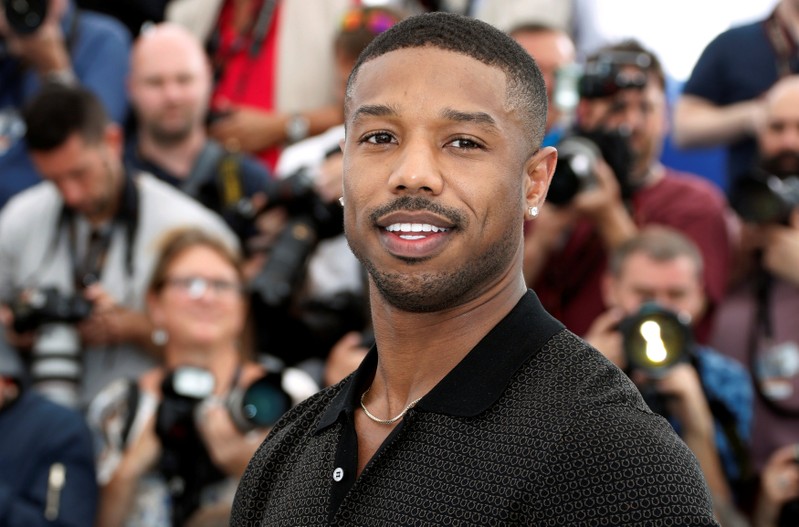Why Michael B. Jordan thought twice about ‘Fahrenheit 451’
LOS ANGELES (Reuters) – Moral misgivings nearly made Michael B. Jordan, the star of HBO’s cinematic revival of Ray Bradbury’s beloved 1953 novel “Fahrenheit 451,” turn down the leading role of a book burning fireman who hunts down a gang of underground freethinkers.
Jordan, one of Hollywood’s growing class of top young black stars, said the role of Montag, a character who does his job with the severity and power of his flamethrower, weighed on him in the current socially charged U.S. debates about the use of police force, civil liberties and the treatment of minorities.
“I was hesitant about taking the project due to the authoritarian nature of the character,” the 31-year-old star of “Creed” and “Black Panther” told Reuters ahead of the neo-noir’s television release on Saturday.
“Fahrenheit 451,” which was first adapted by filmmaker Francois Truffaut in 1966 and screened out of competition this year at the Cannes Film Festival, tells the story of Montag and his superior Captain Beatty, played by Michael Shannon, who work as “firemen” enforcing laws against literature, art and history.

“Taking on the role of being an oppressor – that was something I wasn’t interested in doing at the moment,” said Jordan, who helped produce the film.
The story turns on Montag’s sudden curiosity to what is inside all the literature many are willing to die for.
Montag’s crisis of conscience is what Jordan said assuaged his unease about the role.
“The message of this movie was bigger than my reservations on this character,” Jordan said. “This movie can do more good than my perspective on the police brutality and the climate that was going on in the real world. I felt art was more powerful at the moment.”
Director Ramin Bahrani infuses Bradbury’s creation with an interactive state social media spectacle where public pressure is doled out by emoji and a virtual assistant called Yuxie is a private life companion.
“I don’t necessarily see it as foreign to the future … I really see it as an alternate tomorrow,” the filmmaker said.
Bahrani sets most of the film at night, accented by the glow of colored fluorescent light while newscasts displayed on skyscrapers propagandize Montag and Beatty’s work.
“The goal is to have the audience feel that this could be happening in our world today … but have things be different enough to create a new world,” Bahrani said.
(Reporting by Eric Kelsey; Editing by Michael Perry)